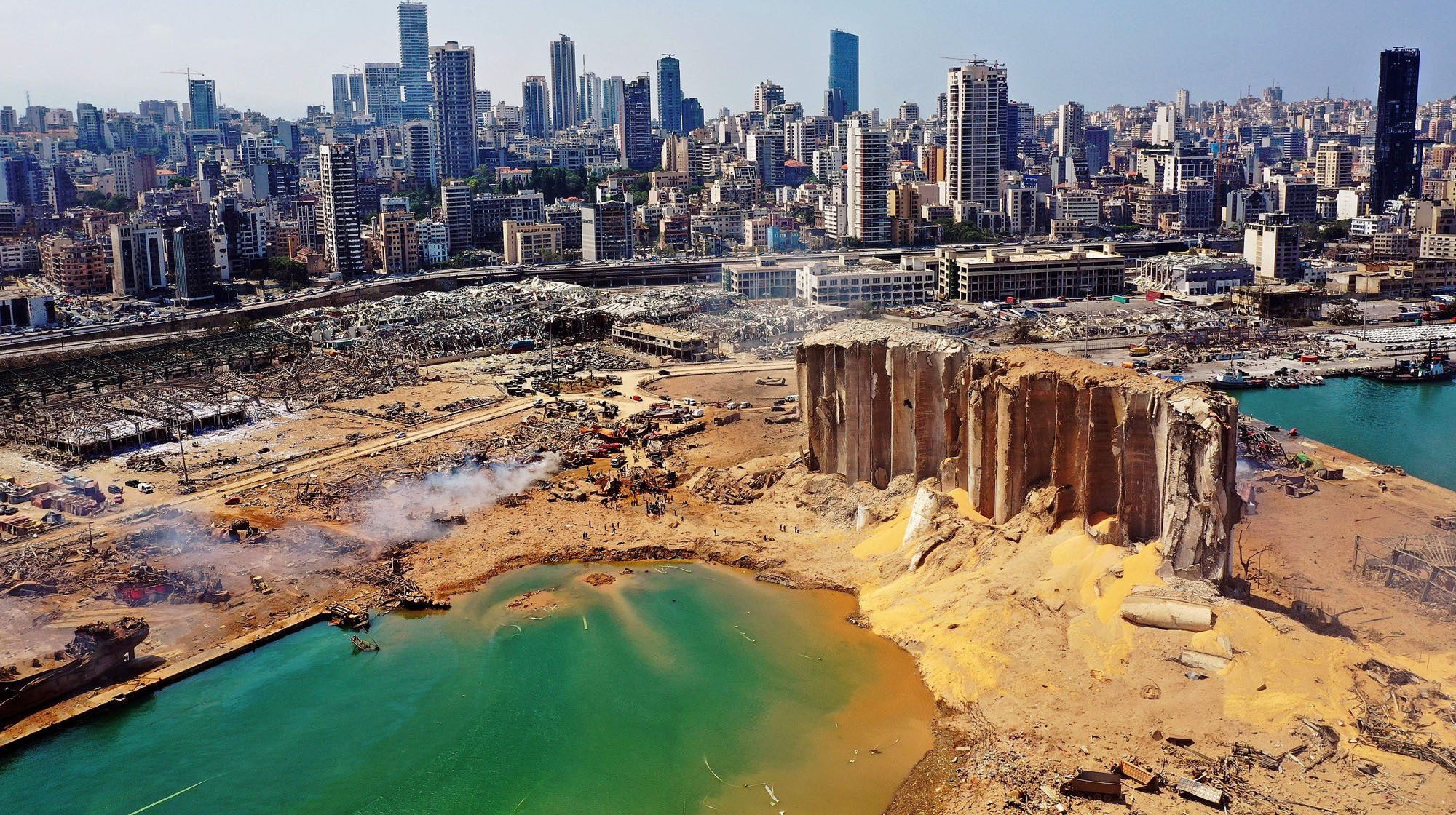There were reports over a Qatari-Lebanese meeting regarding plans to build additional grain silos in Beirut.
Qatar and Lebanon discussed bilateral cooperation in the ports and airports sector on Wednesday, as Beirut marks two years since the tragic 2020 blast.
Lebanon’s news agency (NNA) said the discussions occurred in a meeting between Qatar’s Ambassador to Lebanon Ibrahim Al Sahlawi and Lebanese Caretaker Minister of Public Works and Transportation Ali Hamieh in Beirut.
The NNA added that Al Sahlawi said he will discuss with “concerned officials in Qatar the prospects of collaboration” between Doha and Beirut in the ports and airports sectors.
The meeting came just a day before the two-year anniversary of the tragic Beirut Port explosion, which almost wiped out the entire capital city and its surroundings.
Caused by 2,750 tonnes of unsafely stored ammonium nitrate, the explosion ranks as the sixth-largest accidental blast in human history. More than 200 people were killed and at least 6,000 others were injured.
The death toll has continued to rise two years on as more victims succumb to their injuries. The victims include Rita Antoine Hardini, Julia Awdeh, Rami Fawaz, who died earlier this year.
Qatar’s Amir Sheikh Tamim bin Hamad Al-Thani had reached out to Lebanon’s President Michel Aoun immediately after the blast to provide necessary assistance.
The Gulf state dispatched personnel from the Qatari Search and Rescue Team of the Lekhwiya, or Internal Security Force, to help with emergency rescue operations as many remained trapped under the rubble.
Sheikh Tamim also donated $50 million to help rebuild the capital, with damages estimated to be worth at least $15 billion.
On Sunday, Beirut witnessed the partial collapse of the grain silos at the port, with rising smoke triggering the feelings of the traumatic event.
Beirut’s caretaker economy minister, Amin Salam told the Associated Press (AP) that he is scheduled to discuss with Qatar its plans to build two new grain silos in Beirut.
More recently, Beirut’s caretaker economy minister, Amin Salam told the Associated Press (AP) that he is scheduled to discuss with Qatar its plans to build two new grain silos in Beirut.
There are still no updates on Salam’s meetings in the Gulf state.
Despite billions of aid sent to the country in response to the tragedy, it has yet to financially recover. Even a year ahead of the tragic blast, Lebanon was already grappling with a worsening economic crisis.
The Lebanese currency has lost 90% of its value to the US dollar as the community struggles to access their bank savings. Qatar had previously expressed its readiness to support Lebanon in its crisis once it forms a government.
This year saw the first elections since 2018 in an effort to encourage other nations to provide Lebanon with aid. However, the public was left disappointed after results showed the return of politicians that have been blamed for the country’s crises.
“As one international official told me, carrying through substantial reform would amount to political suicide for these people. They won’t do it. Instead, they will keep going through the motions of make-believe reforms that fall way short of what is needed to convince the IMF,” Heiko Wimmen, Project Director of Iraq, Syria, and Lebanon at Crisis Group told Doha News.







